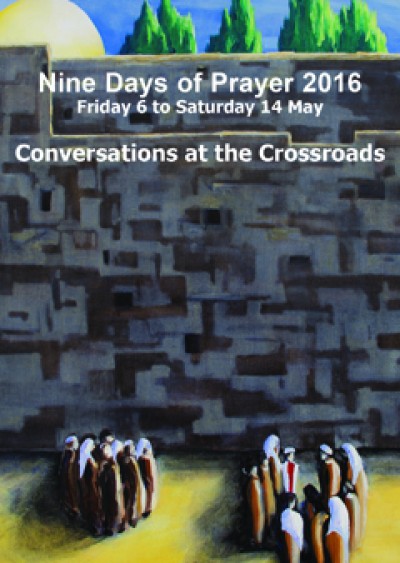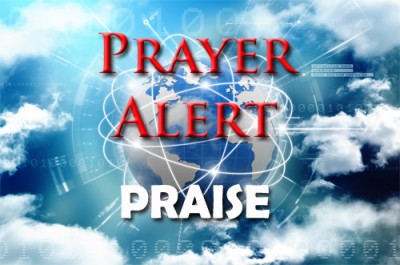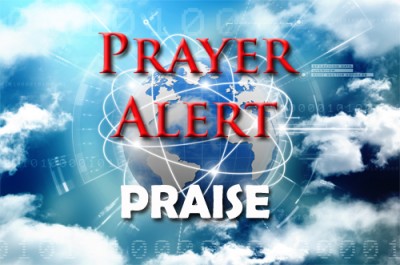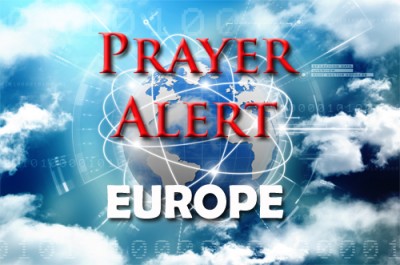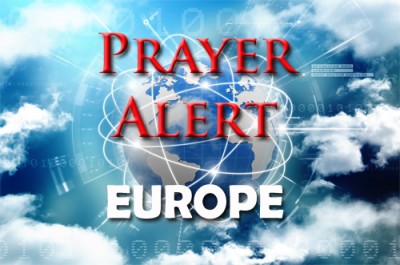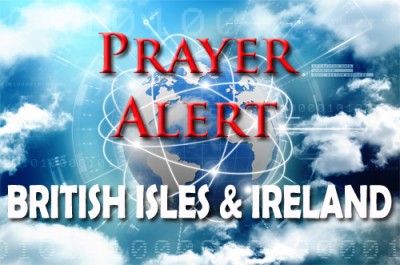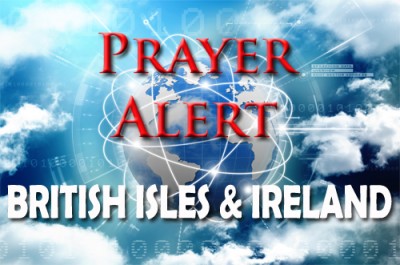Conversations at the Crossroads
11 May 2016Each year, the Canterbury Diocese produces a little prayer/reflection booklet for the Novena – 9 days of prayer between Ascension and Pentecost.
They choose a series of paintings, either by a single artist or on a single theme, then photograph them for the booklet, and marry each one with Scripture, a bit of text and some prayers. Access each day's material here: https://www.canterburydiocese.org/novena/
Order from CPO £1.00 each https://www.cpo.org.uk/product.aspx?prod=C4978BT&cat=3745
Prayer on the Move
11 May 2016Prayers on the Move, is an initiative from SPCK, and launched in London and Newcastle in February, and in Birmingham later in 2016. SPCK is placing 700 ads on the Newcastle Metro and 3,000 on the London Underground encouraging people to give prayer a go. The prayers are aimed at stressed young commuters and are designed to appeal to people who think of themselves as spiritual but not religious. Alongside the prayer posters are a website, app, booklet and merchandise.
The booklet, app and website contain 31 prayers, mostly written specially for the project by leading Christian writers. The app also contains 31 one-minute audio files so individuals who are unused to praying can challenge themselves to pray for a minute a day for a month. There is also advice on how to pray and where to go to find out more, written from a Christian perspective. These materials may also help Christians who are feeling jaded in their prayer life and want to try something new. Churches in Newcastle have been collaborating in organising local events – prayer vigils, prayer walks and getting volunteers together to hand out travel card wallets with prayers printed on them.
You can download the apps from the website. www.prayersonthemove.com.
Refugee camp miracle healing
06 May 2016“The news arrived that Europe had closed its borders. Discouraged and disappointed, hundreds took their place in a camp which had only been intended as a rest stop but was now their closest thing to ‘home’. Within a few weeks, people from our church were going every day to visit and talk to those in the camp: a little human attention and simple conversation are more uplifting than a meal for many suffering people. Though it is forbidden in the camp, Zeda had seen Sandra praying with other refugees. ‘Can you pray for me?’ she asked. Zeda had cancer. They prayed to Isa (Jesus). Two weeks later Sandra was back in the camp. Suddenly Zeda was running towards her waving white papers and shouting out in broken English, ‘It happened! It happened!’ Sandra read the papers. It said there is no more cancer in Zeda’s body. Zeda’s face was shining like the sun. ‘I want to believe like you do’ – she took Sandra’s hands and pointed to the cross around her neck – ‘I want to pray like you do’.”
Refugee children from Europe
06 May 2016Last week's Prayer Alert reported that the Government had defeated an amendment to the immigration bill proposing that the UK accept 3,000 child refugees from Europe in addition to those it has promised to take from Syria. There are many unaccompanied children who escaped to Europe and are in need of loving homes. This week David Cameron changed his mind and said that the UK will take in more unaccompanied Syrian refugee children from Europe, although he did not commit to a specific figure. Ministers will talk to councils before deciding how many can be resettled. Labour said that the announcement, made at Prime Minister's Question Time, did not go far enough and more action was needed.
Helping migrant churches
06 May 2016In a recent conference on the migrant situation, one refugee commented, ‘It’s not the ground we serve with the gospel, it’s the people.’ In Denmark there are now more than two hundred migrant churches, making up a colourful mosaic. Currently a new church is founded every month. KIT (Churches Integration Programme) exists to help with the challenges connected with being church in a foreign country. Many projects in KIT have arisen from the problems that these churches experience while serving migrants. KIT also intends to build bridges between the migrant churches and the more established Danish ones. Practically, KIT helps the migrant churches with rules, acceptance from public authorities, missionary visas and pastors’ networking. In the Netherlands, a See http://www.kit-danmark.dk/dk/ and http://interserve.org.uk/gospel-eu-meeting-point
EU visa-free travel deal with Turkey
06 May 2016EU governments and the European Parliament still have to approve it but, should they agree, Turkish citizens will be able to travel to all Schengen-zone countries . Freedom of speech, the right to a fair trial, and revising terrorism legislation to improve protection of minority rights are just some of the criteria demanded before visa requirements are lifted. It is hard to see how Turkey could be described as meeting those conditions. Ankara increasingly cracks down on its critics in a manner more autocratic than democratic and has not fulfilled quite a number of the criteria required by the EU. But these are desperate times. Most EU governments are under huge public pressure to ease the migrant crisis. The deal is for Ankara to take back potentially every migrant now trying to cross the Aegean to Europe and achieve visa-free travel by the end of June when the European Parliament votes on visa liberalisation. The EU fears that if the visa agreement slides, so will Turkey's commitment to stop migrant crossings.
Labour anti-Semitism row
06 May 2016Norman G Finkelstein, a Jewish author whose parents survived concentration camps during the Holocaust, published a map on his blog in 2014 entitled ‘Solution for the Israel-Palestine conflict’. The map depicted the country of Israel superimposed on a map of the USA. Mr Finkelstein said he posted the map because he found it funny, adding, ‘such jokes are commonplace in the US’. Labour MP Naz Shah copied this map, and has now been suspended by the Labour Party; seventeen other Labour members have been suspended for anti-Semitism and racism since Mr Corbyn took over as leader, including former London mayor Ken Livingstone. The row has lifted the lid on how serious prejudice against Israel has become, and opened a debate around Zionism (the Jewish people's right to self-determination in Israel) and anti-Semitism (hatred directed at Jewish people).
In this week following key elections around the UK, it is so timely that Christians can join together in this great wave of prayer for the evangelisation of our nation - praying 'Thy Kingdom Come'. Tens of thousands of Christians up and down England – and, increasingly, around the world – will be praying in the week of 8-15 May for more people to know the life-transforming love of Jesus Christ. Emails have been flowing in from far and wide, from parishes across a range of traditions and a variety of locations, from urban town centres to rural parishes, from the centre of England to the USA, from Bermuda to Brussels and Israel saying they are joining with us to hold prayer and Beacon Events. Canterbury Cathedral will live-stream their service over the internet (7pm on 15th May). See the WPC 3 things to pray video
